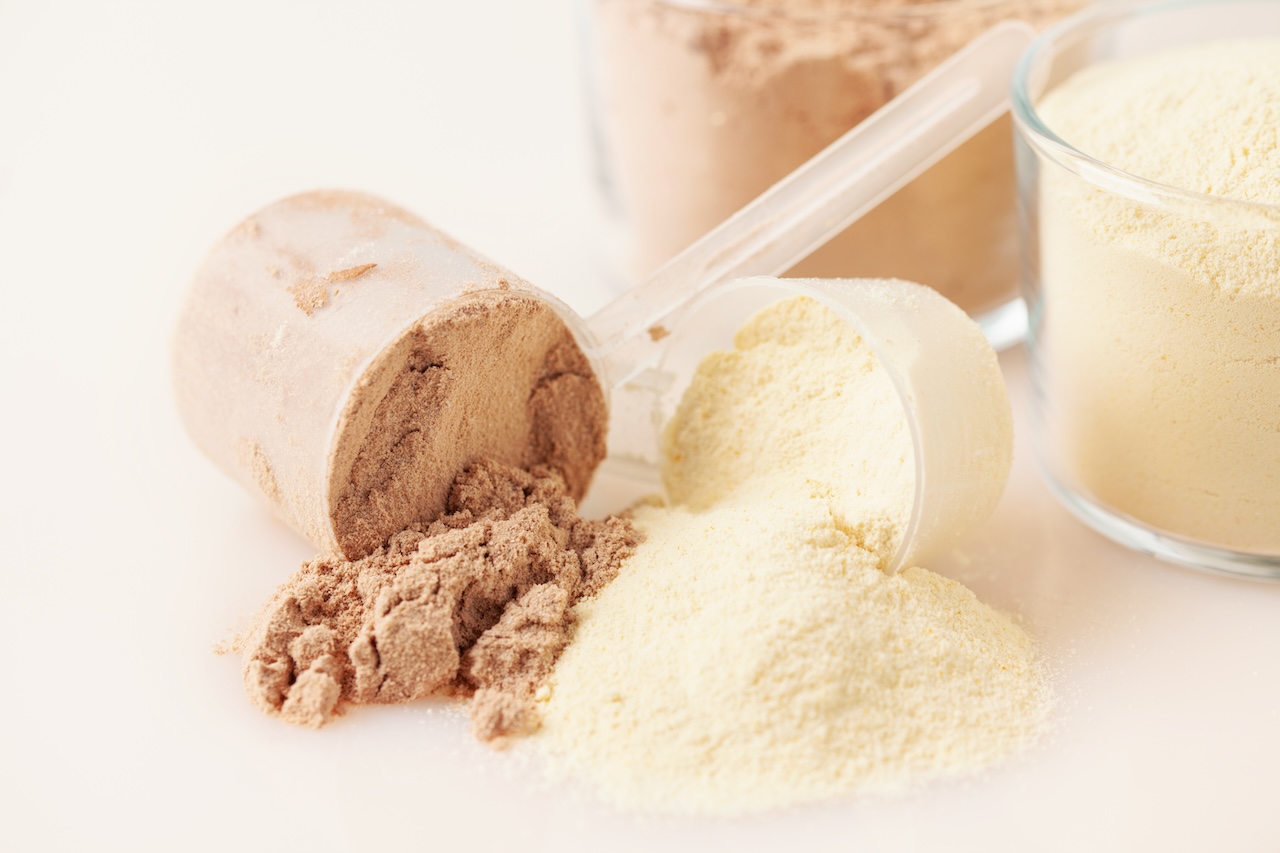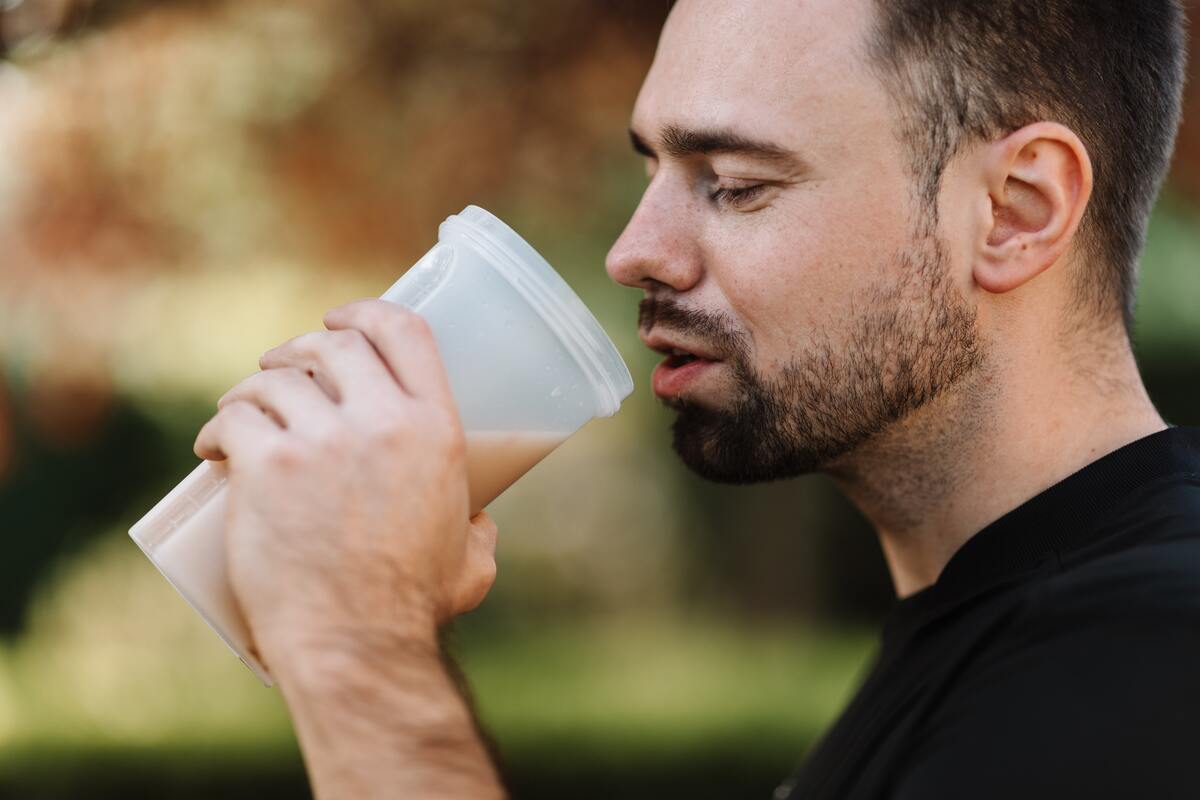
Collagen protein powder and whey protein might look the same from their packaging, but each of these workout supplements differs in their use and makeup. Whey protein powder has been used by fitness enthusiasts for decades, offering a convenient way to achieve protein macro goals. But powdered collagen supplements have only recently become a fitness trend — but is it a fad? In this guide, we’ll break down everything you need to know about choosing collagen protein vs whey and how to determine which is best for your fitness goals.
What is collagen?

What is whey protein?

Whey protein is another product found in powdered supplement form. This protein supplement is made from whey, a byproduct liquid that separates milk when cheese is made. During the cheese-making process, milk fat coagulates and leaves behind whey, which is then turned into a powdered form. This is a complete protein that contains all nine essential amino acids. Our bodies cannot produce essential amino acids on their own; which means we must consume them in our diet.
Collagen protein vs. whey protein

Choosing between collagen or whey protein ultimately comes down to your health and fitness goals. Each supplement has its own set of benefits and it’s important to recognize one supplement cannot replace the other. Collagen protein is considered an incomplete protein since it does not contain all nine essential amino acids. Collagen contains eight amino acids, except branched-chain amino acids (BCAAs), an amino acid that is vital to the muscle-building process. A healthy, well-rounded diet must contain complete protein sources.
But this doesn’t mean collagen can’t also play a vital role in helping you to achieve your wellness goals. Below, we’ll break down which supplement to choose based on your goals.
Muscle growth
If packing on muscle mass is your goal, both collagen and whey protein powder can play a helpful role. However, if choosing between collagen protein vs. whey protein, whey protein is a better choice to help support your muscle growth. This is because whey protein contains high levels of leucine, an amino acid that triggers muscle protein synthesis after a workout.
Some studies, however, do suggest that collagen can also support enhanced muscle growth by strengthening the extracellular matrix of muscle cells. With this in mind, athletes and gymgoers can try taking both collagen protein and whey protein as part of their diet routine.
Bone density
Bone density naturally declines with age, which is why many people take hydrolyzed collagen powder to help combat age-related bone loss and promote healthy density. Many studies have found that consuming collagen regularly can increase bone formation and reduce bone degradation. If you’re looking to support bone density, collagen may be a better choice over whey protein.
Hair, skin, and nails
Consuming healthy levels of protein daily is an important part of maintaining healthy hair, skin, and nails. Whey protein can make up a portion of your daily protein intake to help reach your macro goals. However, collagen has specific benefits on the hair, skin, and nails because it works with other substances like hyaluronic acid and elastin to target the skin and support skin elasticity and volume. Many people find that they have improved skin, more durable nails, and stronger hair when regularly taking collagen supplements.
Considerations when choosing whey or collagen

Choosing to consume one or both whey protein and collagen peptides is a personal choice and depends on your unique goals. However, there are a few important things to consider when making your decision. First and foremost, collagen peptides are typically derived from a bovine source (cow), which means it is entirely made of animal products. As such, collagen powder is not suitable for anyone following a vegan diet. There is no such thing as a vegan collagen powder, but pescatarians may prefer a marine collagen product.
Whey is also not vegan, as it contains dairy byproducts. Other forms of protein powder do exist that may serve the same purpose as whey, however, such as plant-based pea protein. Anyone who has digestive issues or lactose intolerant may also find whey tough to tolerate, as it is a dairy product. When choosing between whey or collagen, consider the protein that best fits with your lifestyle and makes you feel your best.




